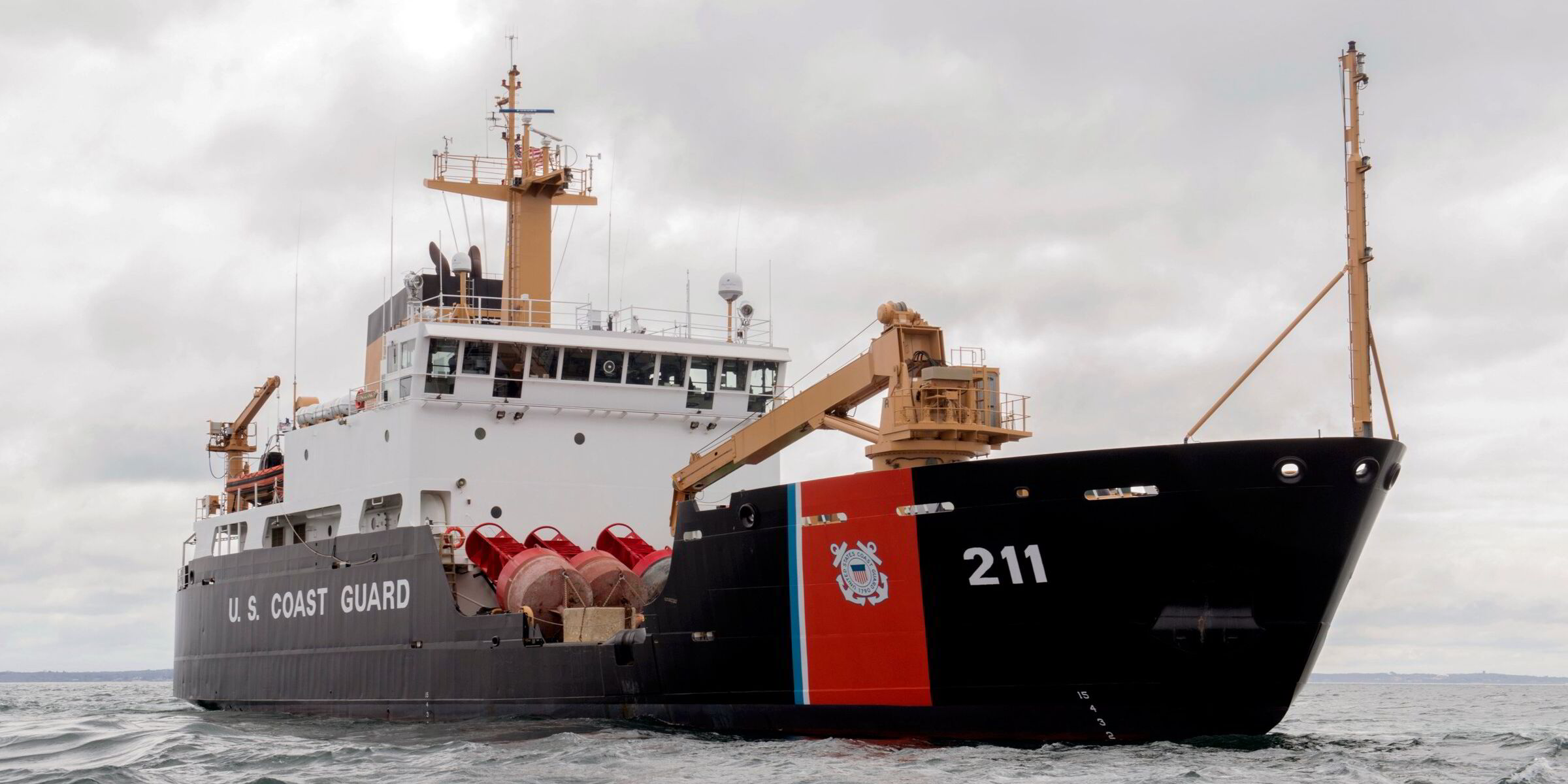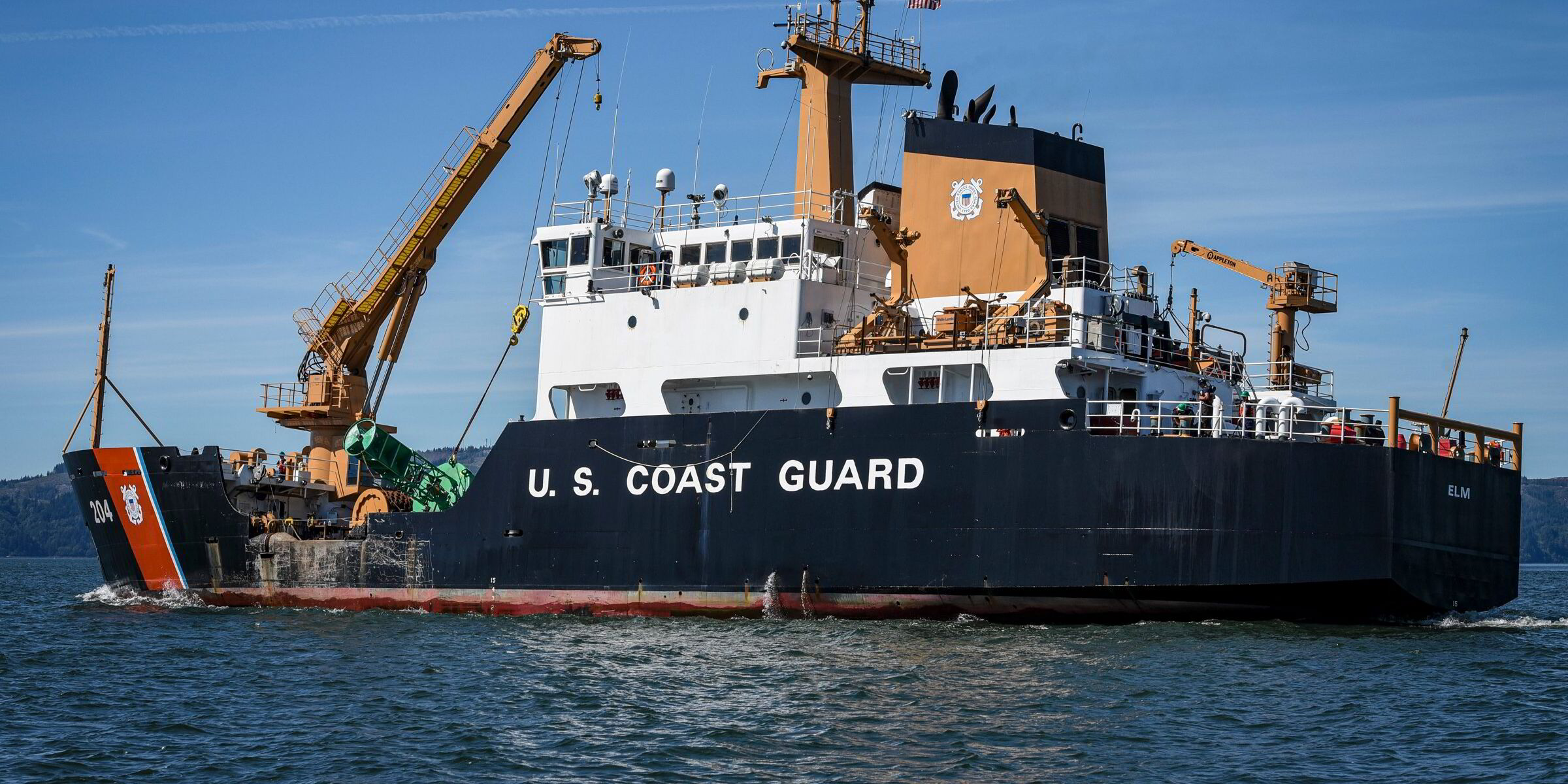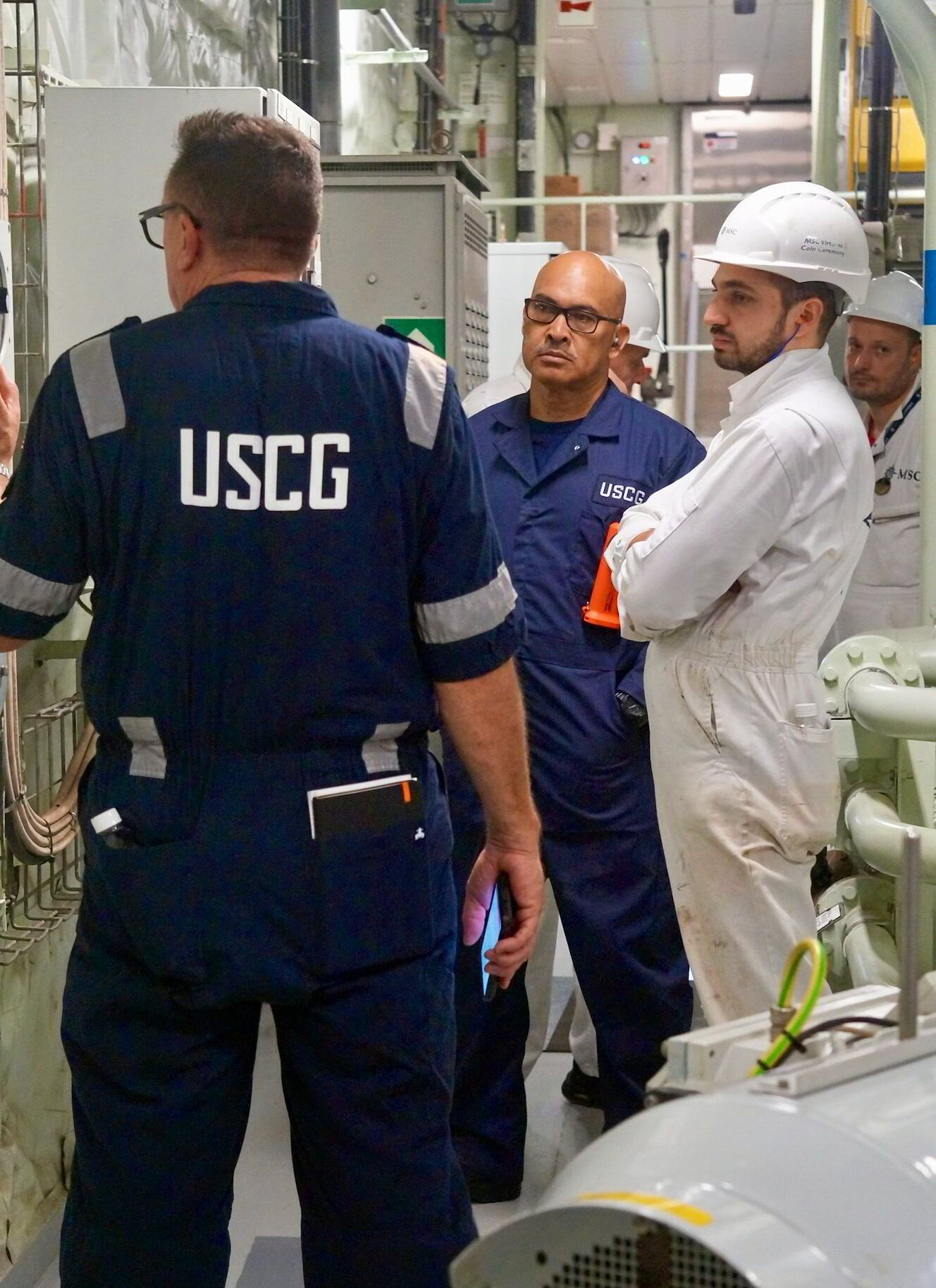US Coast Guard ‘PIT Crew’ is hunting opportunities for shipping deregulation
The US Coast Guard is working to find ways to reduce regulations on shipping after President Donald Trump’s orders to cut red tape across the government.
A group called the Process Improvement Team — or the PIT Crew — has compiled a list of about 150 different items that could be eligible for deregulation, Rear Admiral Wayne Arguin told TradeWinds.
The official, who is the assistant commandant for prevention policy, said the Coast Guard is going through the list and prioritising the potential policies that could be changed.
He acknowledged that some are required by law and may require additional action by Congress on Capitol Hill.
“If it’s required by statute, maybe we need to submit a legislative change proposal or work the Hill to see if we can get some relaxation there,” he said in an interview.
But Arguin said that some policies are within his portfolio, and the Coast Guard can begin conversations to change them.
The US Coast Guard is one of the key federal agencies regulating shipping, with the assistant commandant’s portfolio encompassing marine safety and security, as well as environmental stewardship.
The agency’s effort to regulate came after Trump issued the Unleashing Prosperity Through Deregulation executive order, among others.
Regulation ‘morass’
Targeting what the White House described as the “ever-expanding morass” of regulation by requiring the elimination of 10 regulations for every new one.
Marine safety and environment are among the Coast Guard’s 11 missions. And Arguin, who was an inspector of cruise and cargo ships in the 1990s, has been involved in them for more than three decades.

He told TradeWinds that this is the first time in his nearly 30 years that all branches of government have been interested in maritime.
“I can be frustrated by the fact that maritime happens, and nobody really pays attention to it until it doesn’t,” he said, explaining that the maritime transportation system was only a topic of conversation when there was a supply chain disruption.
But now, conversations are happening in government and the mainstream media about restoring American maritime dominance, revitalising shipbuilding and increasing the US mariner pool
“To those inside maritime, this has been a struggle that we’ve all been talking about for a long time, but it sounds like we’ve been screaming into a Pringles can,” he said. “Now it’s on Fox News, and it’s on CNN.”
He described deregulation as one way that the Coast Guard can contribute.
Arguin said it is “refreshing” that the agency, under a variety of executive orders, is able to work on harmonising safety, security and efficiency of the maritime transportation system.
‘Outdated’ rules
“It’s an opportunity to go back through and eliminate things that are either outdated or unnecessary because they’ve been technologically aged,” he said, noting that it aids opportunities to bring alternative fuels to the fleet.
TradeWinds recently reported that federal officials are considering changes to the process for registering foreign-flagged vessels into the US.

Arguin couched the effort as part of the deregulation drive.
“I’ve heard from the US registry group for a while that taking a ship that is built foreign, operated under a different flag, and bringing it into the US fleet is just cumbersome, and so we’re moving forward with figuring out a way to streamline that process,” the admiral said.
He said making it easier to bring more steel into the US-flag fleet provides more opportunities for American mariners.
TradeWinds also recently reported that the Coast Guard had withdrawn guidance to enforce the Merchant Mariner Credential requirement for back-deck crew members on offshore vessels and industrial ships, following the expiration of a legal waiver.
But Arguin said the reasoning for this change was different — the Coast Guard did not want this requirement to be enforced in different ways in different parts of the country, he explained. He said the Coast Guard is working on providing more clarity but will enforce the rule.
The US pulled out of talks on global carbon regulations at the International Maritime Organization, where the Coast Guard is one part of the US delegation.
‘Variety of possibilities’ for carbon rules
Asked whether the Coast Guard will enforce amendments to the International Convention for the Prevention of Pollution from Ships (Marpol) that ultimately come out of the IMO, Arguin said it will be up to the Trump administration to decide the enforcement posture.
“I think there’s a variety of different possibilities,” he said.

“On any of those future amendments, I think we’ll have to look at not only how they align with the administration’s priorities, but what does that look like from a US fleet’s perspective, and then, when the administration [and] State Department make a decision on that, we’ll figure out what the most effective enforcement posture looks like.”
Since Trump returned to the White House in January, the US government has shifted to border security, and the Coast Guard has played a part in that.
But Arguin explained that there is minimal overlap between marine safety resources and, for example, Coast Guard cutter crews on border security missions at sea.
“There has been no degradation of our field folks, the sectors that are at the frontlines: our port-state control officers, marine investigators, our petty officers that are doing facilities examinations,” he said. “No change in that posture.”
In fact, he noted that those frontline Coast Guard workers in ports are also focused on border security.
Read more
- US trade office says ‘swift action is needed’ on China shipbuilding ahead of port fee decision
- US ratchets up sanctions on Iranian oil trade as Trump mixes deal talk with ‘maximum pressure’
- Trump signals flexibility on auto sector tariffs that hit car carriers
- Chevron’s Venezuela exports hit new snag as Trump tariffs continue to bite
- US sanctions ‘expansive fleet’ of Dubai shipowner for aiding Houthis and Iran
Content Original Link:
Read Full article from Original Source TradeWinds www.tradewindsnews.com
" target="_blank">Read Full article from Original Source TradeWinds www.tradewindsnews.com























































